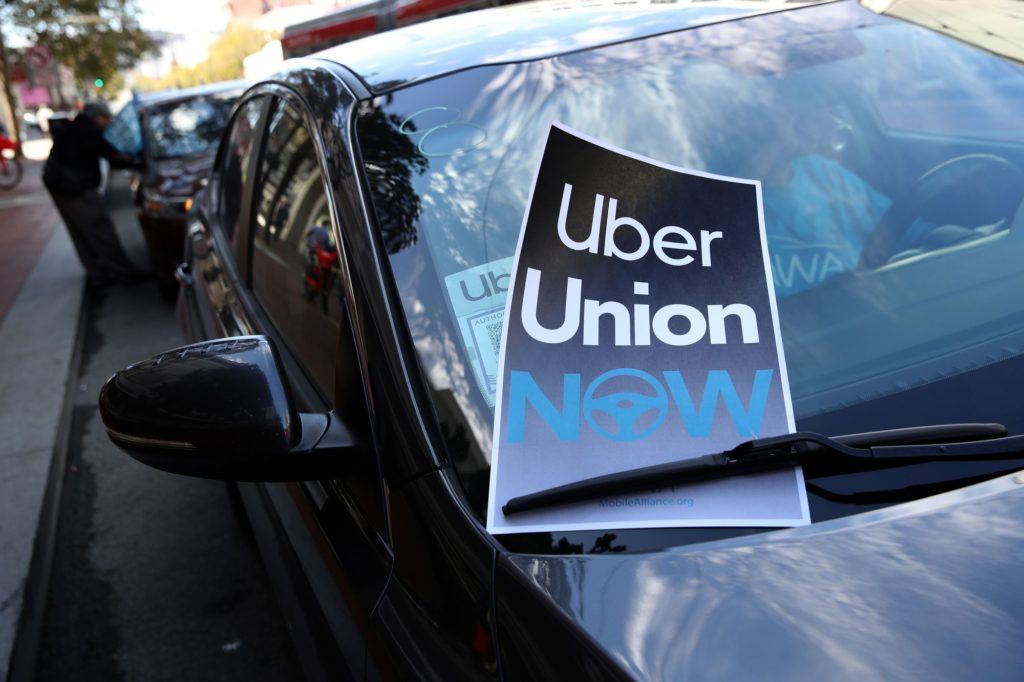California AB5 Threatens to Permanently Kill Lyft & Uber

California bill AB5 could slam Uber and Lyft with massive new costs, widening company losses, and making rideshare more expensive. | Source: Justin Sullivan / Getty Images / AFP
The first major regulatory assault on rideshare is about to crash headlong into Lyft and Uber, courtesy of California bill AB5.
California Bill AB5 Could Kill Rideshare
The California legislature appears certain to pass AB5 , which would effectively force Lyft and Uber to reclassify drivers from independent contractors to employees. Governor Gavin Newsom has publicly proclaimed his support for the bill, virtually ensuring its passage.
One cannot underestate how bad this is for Lyft and Uber, for their shareholders, and possibly for consumers.
If rideshare drivers are reclassified, it creates a nightmare of regulatory burden for Lyft an Uber.
Rideshare Will See Gigantic Cost Increases
To begin with, each company will be forced to contribute 7.65% of worker pay to Social Security and Medicare. Lyft and Uber will also be required to pay another 1% in various state payroll taxes, and $56 per employee to the federal government for unemployment insurance.
The companies will also have to spend enormous amounts of capital to set up new payroll systems and payroll withholding logistics to meet these regulatory requirements.
Don’t forget about workers compensation insurance, which is incredibly expensive in California.
There is also the specter of Obamacare, whose requirements may force Lyft and Uber to provide health insurance for all of their California employees.
Ed Butowsky, Managing Partner of Chapwood Capital Investment Management in Dallas, tells CCN.com:
“As it is, Lyft and Uber are losing billions of dollars, and are effectively subsidizing every ride because of their ongoing price war. If government starts piling on costs, it will choke off this incredible free-market innovation, and will harm both consumers and the drivers.”
This Law Will Hurt Consumers & Drivers

By increasing costs on the provider, it will force Lyft and Uber to raise prices, defeating the purpose of rideshare.
California seems so intent on providing worker protections that it fails to realize that such increased costs might result in reduced ridership.
Reduced ridership means less demand. Less demand means less money for the existing pool of drivers to divide up. The drivers will make less money, and some may drop out of the pool altogether as a result.
How does that help the drivers?
The one group of winners in this scenario might just be the taxi drivers.
Taxis owned a multi-decade monopoly on this form of third-party transportation.
The competition from rideshare has been so overwhelming that many taxi driver incomes were devastated. By forcing rideshare prices up, the government may inadvertently give taxi drivers a second lease on life.
This would not necessarily be the end of the line for rideshare, as far as this particular bill goes.
The One Bullet in Rideshare’s Gun
The companies will likely lobby to adopt a ballot proposition that would undo the legislation. It might have a serious chance of passing if consumers get fed up with the higher prices. Indeed, Lyft and Uber may willingly choose to jack up prices significantly, even beyond what may be necessary, in order to stack the deck in their favor.
That ballot proposition would become even easier to swallow for voters if Uber and Lyft also guaranteed a specific minimum hourly wage, of which $21 appears to be the current target.
That might mollify many voters who would otherwise vote against the proposition.
Finally, this should be of great concern to investors over the long term.
California is but one of many worker-friendly states that would be likely to pass this kind of law.
If such a wave sweeps over the nation, there’s no way these companies will be able to make enough money to survive, and their stock prices will tank.
Disclaimer: The views expressed in the article are solely those of the author and do not represent those of, nor should they be attributed to, CCN.com.